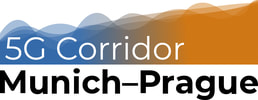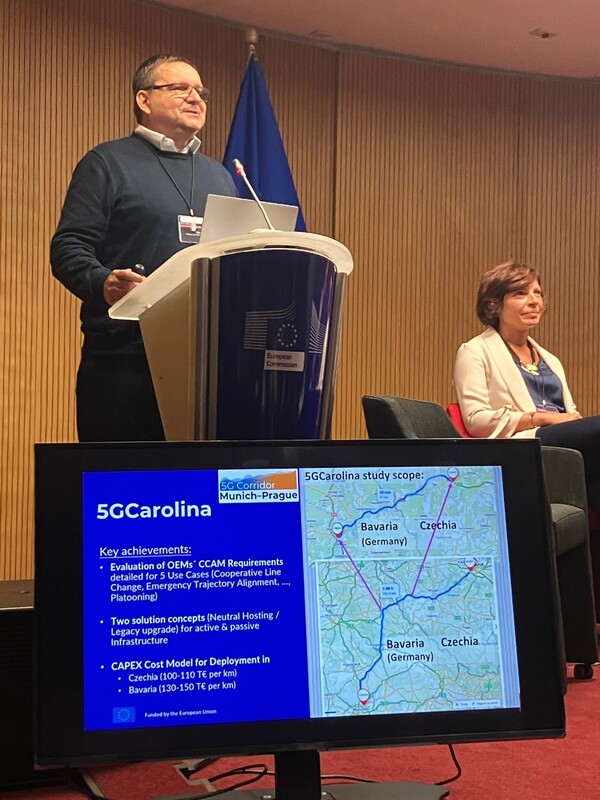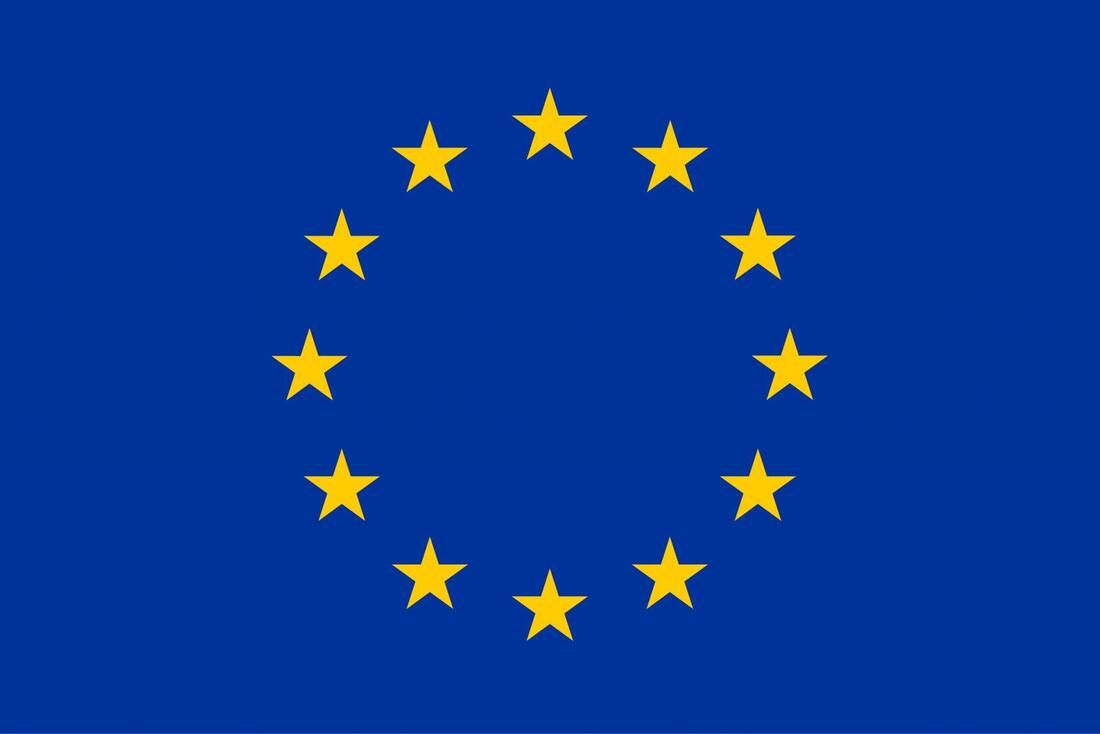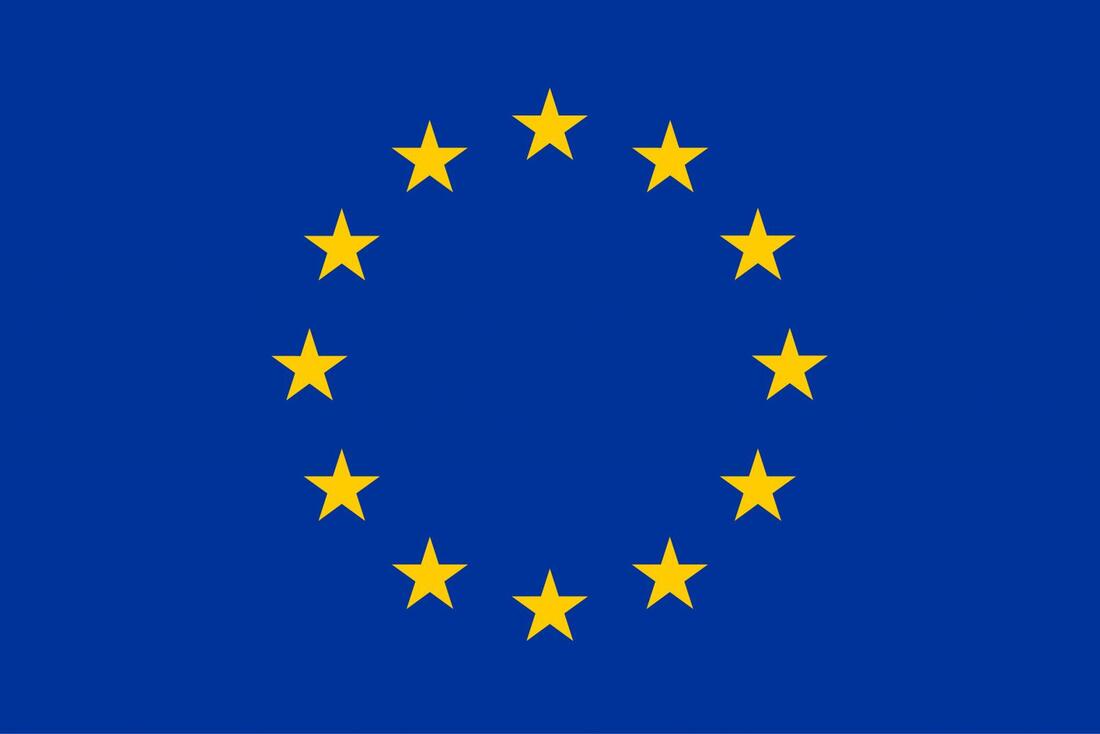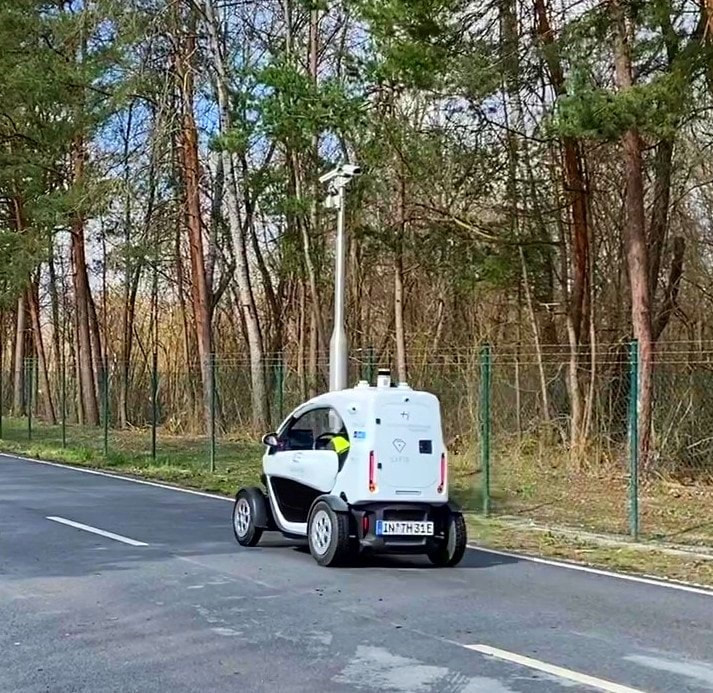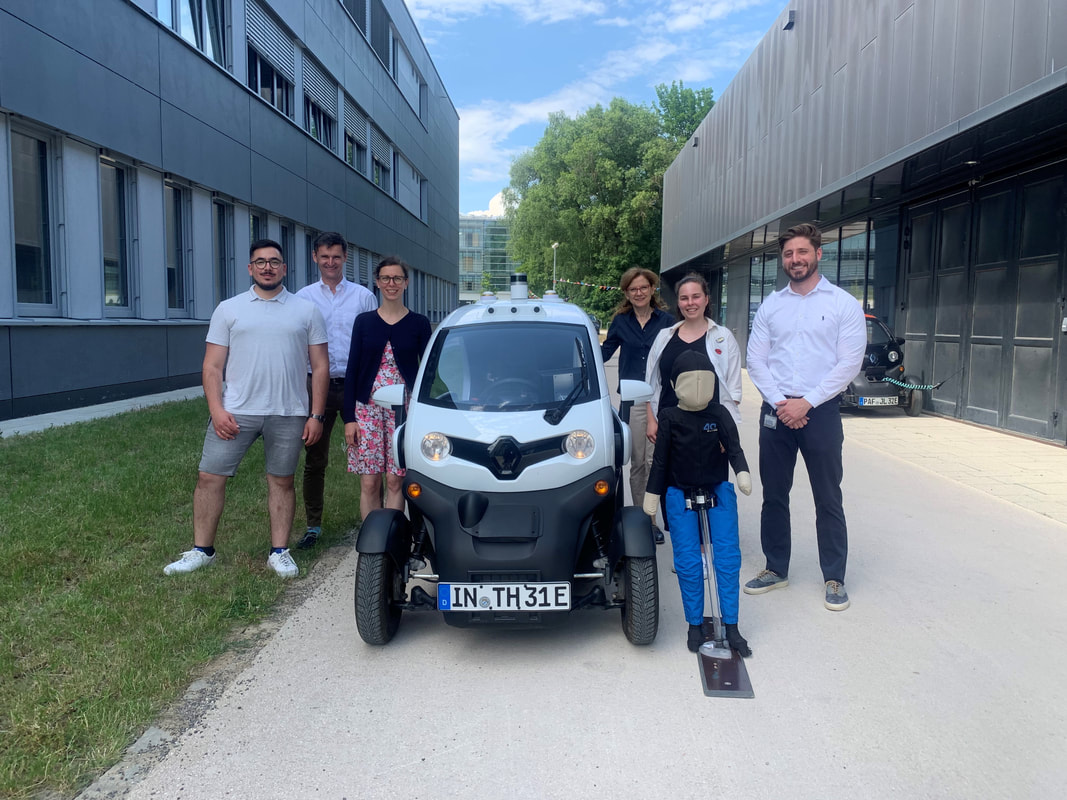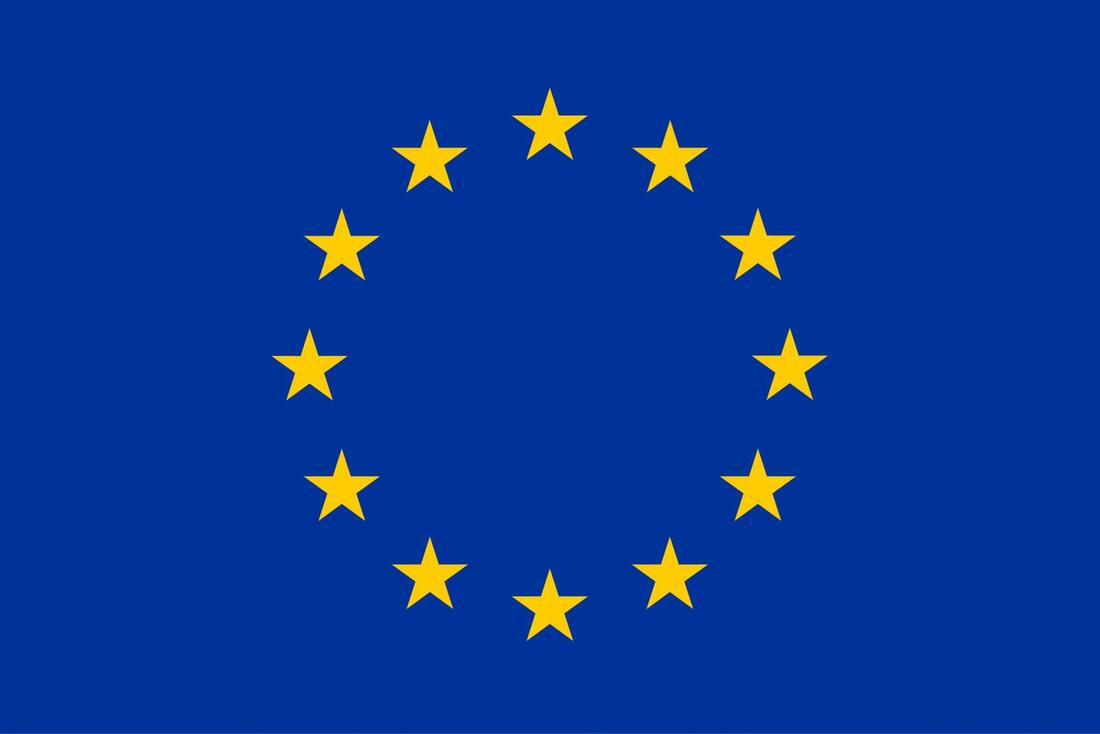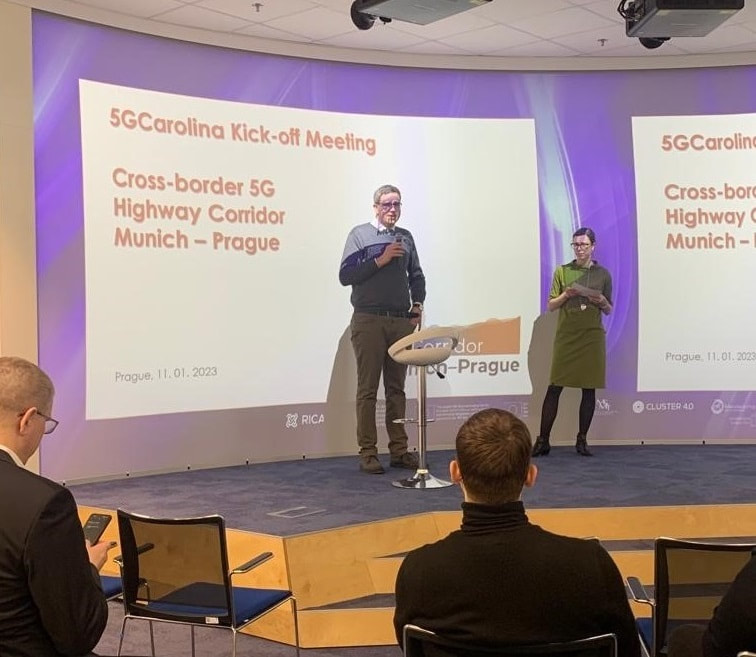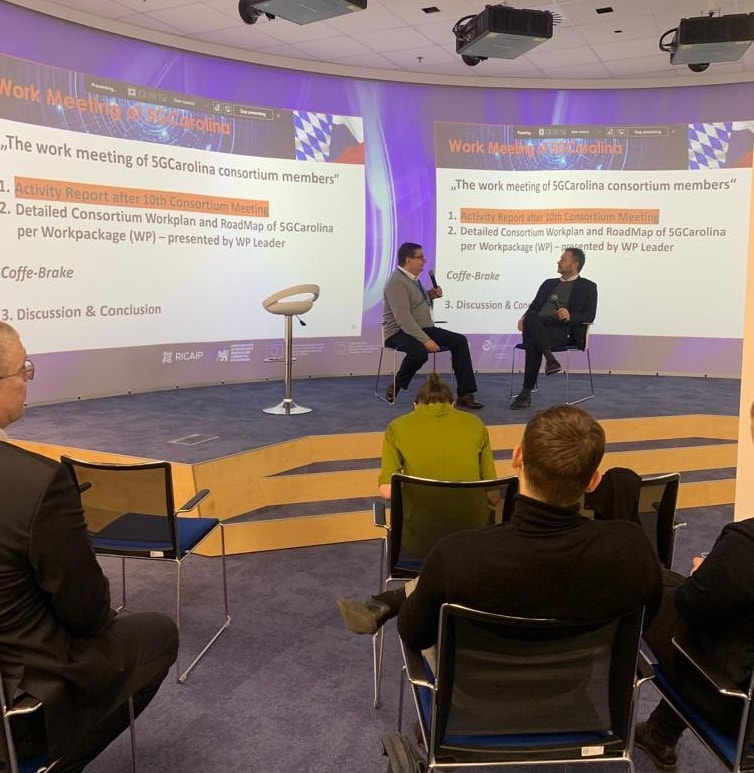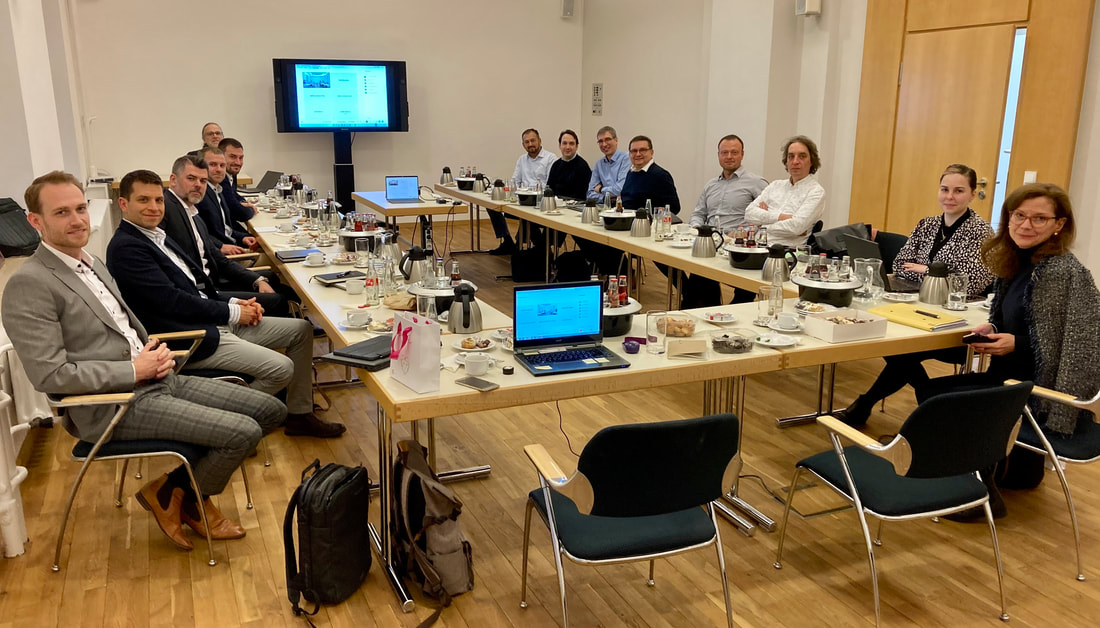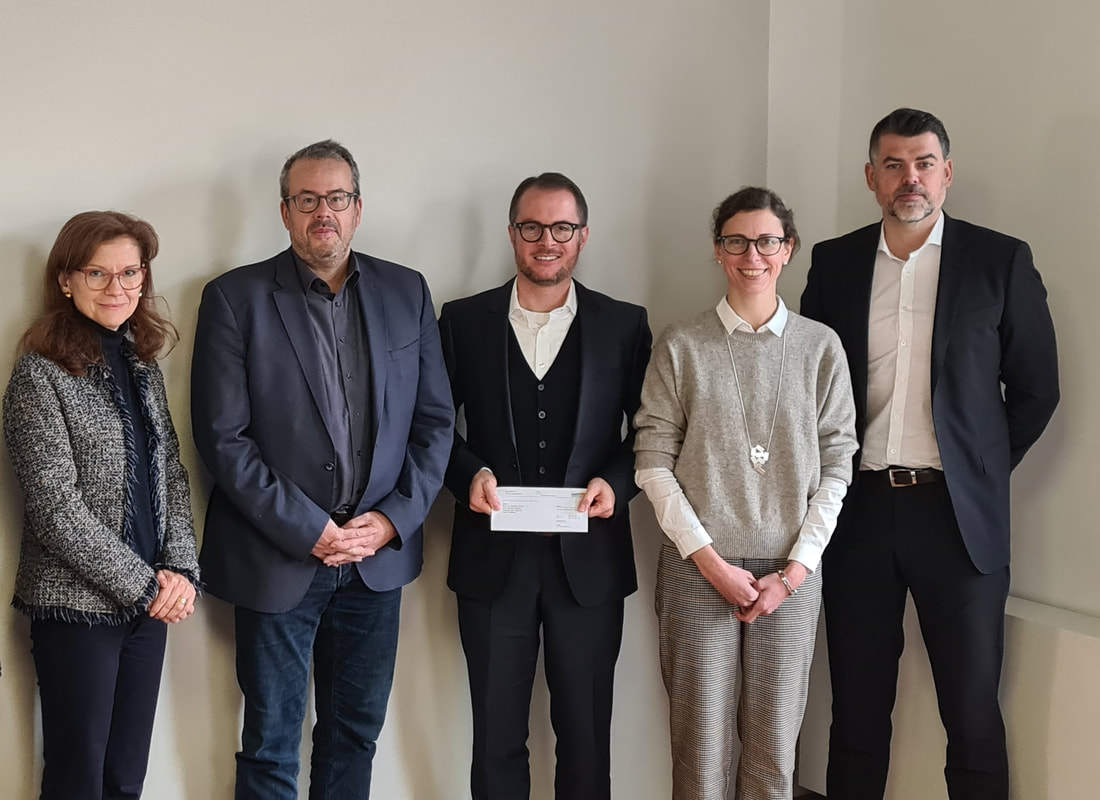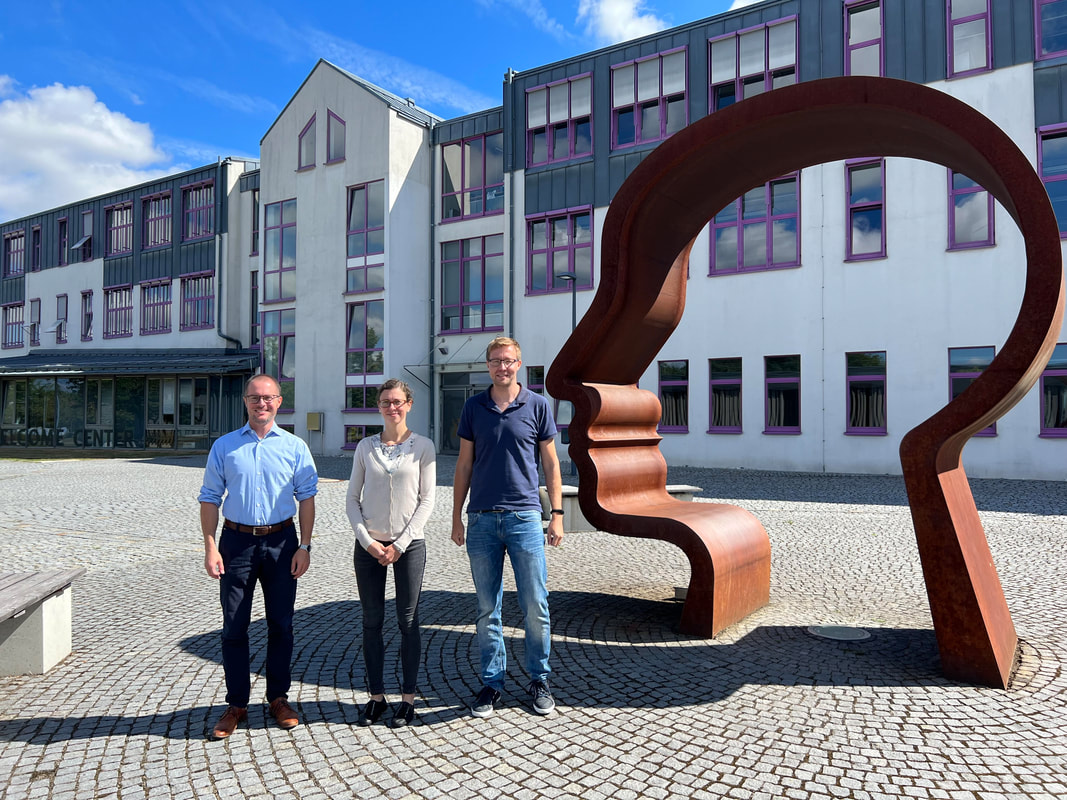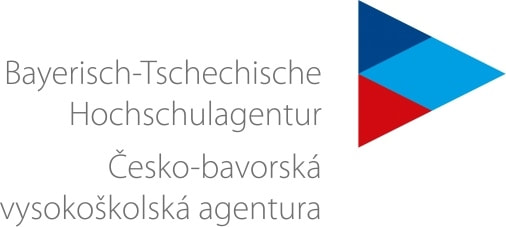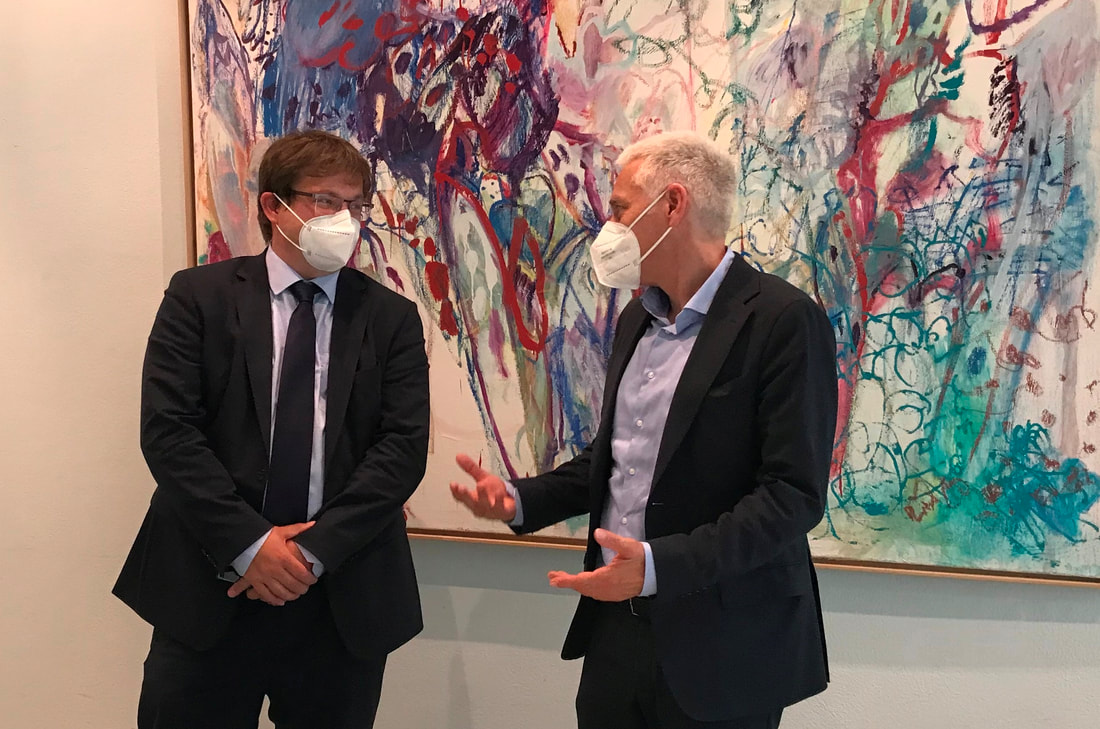Recent and Upcoming News and Events
Czech Republic's Autonomous Mobility Plan: 2025 and Beyond

July 24, 2024
In April 2024, the Czech government unveiled a plan aimed at establishing a favorable environment for the development and operation of autonomous vehicles in the country by 2025, with a vision extending to 2030.
This initiative seeks to position the Czech Republic as a leader in research, development, and testing of autonomous systems in Central Europe. The plan outlines 13 specific measures across four key areas: traffic engineering, legislation, research, and public education. It focuses on creating a test environment for autonomous vehicles, establishing a cybersecurity platform, and developing a legal framework for autonomous operations at SAE Level 3. It supports research and innovation, encourages international collaboration, and addresses ethical concerns and traffic accident investigations. Additionally, it aims to update driver education and increase public awareness about autonomous mobility, ensuring a skilled workforce and higher acceptance of the technology. For detailed information on each measure, please consult the original document or our summary of the measures (in German).
"The Autonomous Mobility Plan represents the main strategy for the development of the whole area in the Czech Republic, which has great potential from the perspective of the car industry, research and innovation and the creation of new smart mobility services. The individual steps and measures include the development of digital infrastructure and support for innovative projects that we will implement in the Czech Republic in the coming years. We plan to further strengthen cooperation with foreign partners, including the development of cross-border testing and direct cooperation between the academic and private sectors. Autonomous mobility as one of the main trends in transport is important for increasing traffic safety, making it more efficient and modernizing the whole sector, and it also offers a number of opportunities for Czech companies and the creation of new transport solutions" - Tereza Čížková, Head of New Technologies in Transport Unit, Czech Ministry of Transport.
In terms of research on traffic safety, the Czech Transport Research Centre (CDV) runs a unique worldwide map and analysis of accidents involving autonomous vehicles. You can find more information about the CDV on their website.
In Germany, the regulatory environment supports Germany's strong automotive industry and fosters innovation in automated mobility. In 2017, Germany passed legislation allowing highly automated vehicles corresponding to the SAE 3 level to operate on public roads under specific conditions. Since 2021, the Act on Autonomous Driving makes it possible for autonomous vehicles at SAE 4 level to operate in regular public road transport in determined operational areas, making Germany the first country in the world with a legislation on this matter. Initially, application scenarios include, among others, shuttle buses on company premises or at trade fairs. The law stipulates permanent monitoring of operation by a human supervisor. In case of an emergency, the supervisor must be able to stop or activate the autonomous driving functions of the vehicle remotely.
In April 2024, the Czech government unveiled a plan aimed at establishing a favorable environment for the development and operation of autonomous vehicles in the country by 2025, with a vision extending to 2030.
This initiative seeks to position the Czech Republic as a leader in research, development, and testing of autonomous systems in Central Europe. The plan outlines 13 specific measures across four key areas: traffic engineering, legislation, research, and public education. It focuses on creating a test environment for autonomous vehicles, establishing a cybersecurity platform, and developing a legal framework for autonomous operations at SAE Level 3. It supports research and innovation, encourages international collaboration, and addresses ethical concerns and traffic accident investigations. Additionally, it aims to update driver education and increase public awareness about autonomous mobility, ensuring a skilled workforce and higher acceptance of the technology. For detailed information on each measure, please consult the original document or our summary of the measures (in German).
"The Autonomous Mobility Plan represents the main strategy for the development of the whole area in the Czech Republic, which has great potential from the perspective of the car industry, research and innovation and the creation of new smart mobility services. The individual steps and measures include the development of digital infrastructure and support for innovative projects that we will implement in the Czech Republic in the coming years. We plan to further strengthen cooperation with foreign partners, including the development of cross-border testing and direct cooperation between the academic and private sectors. Autonomous mobility as one of the main trends in transport is important for increasing traffic safety, making it more efficient and modernizing the whole sector, and it also offers a number of opportunities for Czech companies and the creation of new transport solutions" - Tereza Čížková, Head of New Technologies in Transport Unit, Czech Ministry of Transport.
In terms of research on traffic safety, the Czech Transport Research Centre (CDV) runs a unique worldwide map and analysis of accidents involving autonomous vehicles. You can find more information about the CDV on their website.
In Germany, the regulatory environment supports Germany's strong automotive industry and fosters innovation in automated mobility. In 2017, Germany passed legislation allowing highly automated vehicles corresponding to the SAE 3 level to operate on public roads under specific conditions. Since 2021, the Act on Autonomous Driving makes it possible for autonomous vehicles at SAE 4 level to operate in regular public road transport in determined operational areas, making Germany the first country in the world with a legislation on this matter. Initially, application scenarios include, among others, shuttle buses on company premises or at trade fairs. The law stipulates permanent monitoring of operation by a human supervisor. In case of an emergency, the supervisor must be able to stop or activate the autonomous driving functions of the vehicle remotely.
5G-project in BTHA Joint Call successful
July 01, 2024
The Bavarian-Czech Academic Agency will fund 15 projects in the “Joint Call Bavaria - Czech Republic 2024 - 2026”, which will initiate joint scientific cooperation with the participation of young researchers from both countries.
Overall, the research priorities of the selected projects lie in the fields of information technologies and artificial intelligence, material sciences and nanotechnologies as well as cultural and social sciences with a focus on the topics of the High-Tech Agenda Bavaria.
Among the successful researchers are Prof. Dr.‐Ing. Eckehard Steinbach (TU Munich) and Prof. Ing. Zdeněk Bečvář, Ph.D. (Technical University Prague) with their project “Remote Experience Center for Joint Research in Robotics and Mobile Communications“. Over the course of their project, the partners will establish a Remote Experience Center (REC) between their two institutions in order to democratize access to integrated high-end robotics and mobile communication systems.
We congratulate Prof. Steinbach and Prof. Bečvář and their teams on their success!
More information can be found on the BTHA website.
The Bavarian-Czech Academic Agency will fund 15 projects in the “Joint Call Bavaria - Czech Republic 2024 - 2026”, which will initiate joint scientific cooperation with the participation of young researchers from both countries.
Overall, the research priorities of the selected projects lie in the fields of information technologies and artificial intelligence, material sciences and nanotechnologies as well as cultural and social sciences with a focus on the topics of the High-Tech Agenda Bavaria.
Among the successful researchers are Prof. Dr.‐Ing. Eckehard Steinbach (TU Munich) and Prof. Ing. Zdeněk Bečvář, Ph.D. (Technical University Prague) with their project “Remote Experience Center for Joint Research in Robotics and Mobile Communications“. Over the course of their project, the partners will establish a Remote Experience Center (REC) between their two institutions in order to democratize access to integrated high-end robotics and mobile communication systems.
We congratulate Prof. Steinbach and Prof. Bečvář and their teams on their success!
More information can be found on the BTHA website.
Join us for the 5G delegation trip to Brno and Prague in September
On 11-12 September 2024, the 5G Corridor Munich-Prague organizes a delegation trip to Brno and Prague for Bavarian researchers.
The objective of the two-day mission is to explore the 5G research landscape in Brno and Prague, enabling researchers from Bavaria to meet their Czech colleagues from Brno University of Technology, Central European Institute of Technology and Czech Technical University in Prague and discuss potential future collaborations. You can find more information about the preliminary program here.
The delegation trip takes place on the occasion of the European Wireless 2024 conference in Brno from 9-11 September. Delegation members are invited to attend the conference individually before the delegation program begins on 11 September.
The delegation trip is planned for up to eight representatives from Bavarian research institutions and universities, who do not yet have strong links to Czech research institutions. Participants should have expertise in 5G-related themes and interest in potential cooperation with Czech research partners. Participation is limited to one representative per organization.
The 5G Corridor Munich-Prague will cover the costs of the program, local transport in Brno and Prague, including transport from Brno to Prague, and meals. Participants are expected to organize their travel and cover their travel costs to Brno and from Prague, as well as their accommodation costs.
If you are interested in participating, please apply at [email protected]. Please provide brief information about your motivation and research interests via this form.
If your participation is confirmed and you need support covering accommodation and travel cost, you can apply for the 5G Corridor mobility grant. For details, please contact [email protected].
The objective of the two-day mission is to explore the 5G research landscape in Brno and Prague, enabling researchers from Bavaria to meet their Czech colleagues from Brno University of Technology, Central European Institute of Technology and Czech Technical University in Prague and discuss potential future collaborations. You can find more information about the preliminary program here.
The delegation trip takes place on the occasion of the European Wireless 2024 conference in Brno from 9-11 September. Delegation members are invited to attend the conference individually before the delegation program begins on 11 September.
The delegation trip is planned for up to eight representatives from Bavarian research institutions and universities, who do not yet have strong links to Czech research institutions. Participants should have expertise in 5G-related themes and interest in potential cooperation with Czech research partners. Participation is limited to one representative per organization.
The 5G Corridor Munich-Prague will cover the costs of the program, local transport in Brno and Prague, including transport from Brno to Prague, and meals. Participants are expected to organize their travel and cover their travel costs to Brno and from Prague, as well as their accommodation costs.
If you are interested in participating, please apply at [email protected]. Please provide brief information about your motivation and research interests via this form.
If your participation is confirmed and you need support covering accommodation and travel cost, you can apply for the 5G Corridor mobility grant. For details, please contact [email protected].
Autonomous mobility in the shuttle model region Upper Franconia
 © Jana Lachmann, 5G Corridor Munich-Prague
© Jana Lachmann, 5G Corridor Munich-Prague
May 02, 2024
On 24 April 2024, the 5G corridor team visited the Lucas-Cranach-Campus in Kronach during the Czech-Bavarian smart-region meeting. The Lucas-Cranach-Campus is part of the Coburg University of Applied Sciences, where research teams are working on autonomous mobility, among other things within the framework of the Shuttle-Modellregion Oberfranken (shuttle model region Upper Franconia) project.
The Shuttle-Modellregion Oberfranken is a research project with ten partners from science, business and local authorities, including the district of Kronach. As part of the project, highly automated minibuses travel on public roads on programmed routes in Kronach, Hof and Bad Steben in what is known as "autonomous mode". While the district of Kronach looks after the vehicles and routes, project partner DB Regio Bus is responsible for driving operations. Since 2021, six highly automated minibuses have been operating on public roads in the Upper Franconian towns.
Prof. Dr. Lucila Patino Studencki at the Lucas-Cranach-Campus in Kronach has been doing research on 5G networks in the context of autonomous mobility within the 5G-based test field for automated driving. She has expressed interest in collaborating with the Czech Republic. More information about her profile can be found here.
The meeting of the Czech-Bavarian smart-region focused on smart energy and mobility was organized by the Consulate General of the Czech Republic in Munich in cooperation with the Bavarian partners Bayern Innovativ, Es geht! Energiesysteme GmbH and Zentrum für digitale Entwicklung and with the CzechTrade agency with the support of the Ministry of Industry and Trade of the Czech Republic. The thematic focus of the event was on smart energy and mobility. The aim of the meeting was to bring together Czech and Bavarian representatives of state institutions, companies, universities and municipalities to discuss possible joint projects and cooperation in the fields of energy and mobility.
On 24 April 2024, the 5G corridor team visited the Lucas-Cranach-Campus in Kronach during the Czech-Bavarian smart-region meeting. The Lucas-Cranach-Campus is part of the Coburg University of Applied Sciences, where research teams are working on autonomous mobility, among other things within the framework of the Shuttle-Modellregion Oberfranken (shuttle model region Upper Franconia) project.
The Shuttle-Modellregion Oberfranken is a research project with ten partners from science, business and local authorities, including the district of Kronach. As part of the project, highly automated minibuses travel on public roads on programmed routes in Kronach, Hof and Bad Steben in what is known as "autonomous mode". While the district of Kronach looks after the vehicles and routes, project partner DB Regio Bus is responsible for driving operations. Since 2021, six highly automated minibuses have been operating on public roads in the Upper Franconian towns.
Prof. Dr. Lucila Patino Studencki at the Lucas-Cranach-Campus in Kronach has been doing research on 5G networks in the context of autonomous mobility within the 5G-based test field for automated driving. She has expressed interest in collaborating with the Czech Republic. More information about her profile can be found here.
The meeting of the Czech-Bavarian smart-region focused on smart energy and mobility was organized by the Consulate General of the Czech Republic in Munich in cooperation with the Bavarian partners Bayern Innovativ, Es geht! Energiesysteme GmbH and Zentrum für digitale Entwicklung and with the CzechTrade agency with the support of the Ministry of Industry and Trade of the Czech Republic. The thematic focus of the event was on smart energy and mobility. The aim of the meeting was to bring together Czech and Bavarian representatives of state institutions, companies, universities and municipalities to discuss possible joint projects and cooperation in the fields of energy and mobility.
|
|
Workshop “eHealth Aligned with User Needs: Opportunities for Bavarian-Czech Cooperation”

March 14, 2024
On 14 March 2024, the 5G Corridor Munich – Prague team hosted an online workshop
on the topic “eHealth Aligned with User Needs: Opportunities for Bavarian-Czech Cooperation”. The event showcased recent initiatives in eHealth, fostered connections among professionals (including researchers, practitioners, public officers, and intermediaries) from Bavaria and the Czech Republic, and highlighted existing funding opportunities for cooperation.
In the first part of the workshop (9:30-10:30), participants heard guest presentations from the following ongoing eHealth projects:
On 14 March 2024, the 5G Corridor Munich – Prague team hosted an online workshop
on the topic “eHealth Aligned with User Needs: Opportunities for Bavarian-Czech Cooperation”. The event showcased recent initiatives in eHealth, fostered connections among professionals (including researchers, practitioners, public officers, and intermediaries) from Bavaria and the Czech Republic, and highlighted existing funding opportunities for cooperation.
In the first part of the workshop (9:30-10:30), participants heard guest presentations from the following ongoing eHealth projects:
5G4UH: 5G for University Hospital; Dr. med. Michael von Wagner (University Hospital Frankfurt)
.
The 5G4UH: 5G for University Hospital project is funded within the 5G for Smart Communities action under the Connecting Europe Facility Digital programme (CEF Digital). The project partners Vodafone GmbH and Frankfurt University Hospital in Germany work together to deploy a leading-edge 5G infrastructure at the university hospital, thus enabling innovative 5G use cases and improving the provision of public health services. Various 5G-based use cases have already been prepared by the University hospital in order to be applied in daily hospital operations. There will be tele-ultrasound devices as well as innovative monitoring solutions and new solutions to organise hospital logistics – all of which contribute to better care, to more efficient processes and to better use of resources and medical skills. The project started in January 2023 and will be completed by the end of June 2025.
Presented by: Dr. med. Michael von Wagner, Director of the University Center for Digital Healthcare, Goethe University Hospital Frankfurt
More information: https://rb.gy/7hs37f
The presentation can be found here.
The 5G4UH: 5G for University Hospital project is funded within the 5G for Smart Communities action under the Connecting Europe Facility Digital programme (CEF Digital). The project partners Vodafone GmbH and Frankfurt University Hospital in Germany work together to deploy a leading-edge 5G infrastructure at the university hospital, thus enabling innovative 5G use cases and improving the provision of public health services. Various 5G-based use cases have already been prepared by the University hospital in order to be applied in daily hospital operations. There will be tele-ultrasound devices as well as innovative monitoring solutions and new solutions to organise hospital logistics – all of which contribute to better care, to more efficient processes and to better use of resources and medical skills. The project started in January 2023 and will be completed by the end of June 2025.
Presented by: Dr. med. Michael von Wagner, Director of the University Center for Digital Healthcare, Goethe University Hospital Frankfurt
More information: https://rb.gy/7hs37f
The presentation can be found here.
Cross-border Emergency Rescue; Manfred Maurer (Bavarian Red Cross)
The project Cross-border emergency rescue, funded under the Interreg Bavaria-Czech Republic program, is a joint initiative by the Bavarian Red Cross Cham and the Rescue service of the Pilsen region. Over three years, the project aims to further develop cross-border cooperation in emergency services beyond day-to-day business - for example through bilingual operational documentation, the use of artificial intelligence (AI) in communication or knowledge transfer in the form of internships and exercises. Medical facilities in Bavaria and the Czech Republic are to be made accessible to all citizens and institutions through digitalization. Among other things, a bilingual emergency call app will be developed for this purpose. The initiative is already the third INTERREG project between the two partners on this topic. The basic structures for the cross-border rescue service have been created since 2016 through the two initial projects.
Presented by: Manfred Maurer, Project Lead „Cross-border Emergency Rescue”, Bavarian Red Cross
More information (in German): https://rb.gy/pzczb4
The presentation can be found here.
Presented by: Manfred Maurer, Project Lead „Cross-border Emergency Rescue”, Bavarian Red Cross
More information (in German): https://rb.gy/pzczb4
The presentation can be found here.
med4PAN; Anna Schmaus-Klughammer (TH Deggendorf)
The 5G research project med4PAN changes healthcare in rural areas by leveraging ultra-fast and reliable connectivity to improve medical services and training. By utilizing virtual reality (VR) and augmented reality (AR) glasses, it transforms medical education. AR technology provides nursing staff with real-time information for wound management, enhancing patient care and safety. The project introduces a sophisticated system for tracking medical devices within facilities, ensuring efficient use and maintenance. It also streamlines emergency services by linking ambulances with hospital teams, enabling real-time data sharing and preparation for incoming patients. Remote consultations are redefined through the transfer of high-resolution histopathological images, facilitating timely diagnoses regardless of distance. Drones equipped with defibrillators are deployed for rapid response to cardiovascular emergencies outside hospitals, showcasing the potential of 5G in lifesaving operations. This integration of 5G technology addresses critical challenges in healthcare delivery, training, and emergency response. med4PAN demonstrates the power of connectivity in creating a more efficient, responsive, and accessible healthcare system. Ultimately, the project sets a new benchmark for the use of advanced technology in enhancing and saving human lives in rural and remote areas.
Presented by: Anna Schmaus-Klughammer, 5G Use Case Coordinator, European Campus Rottal-Inn, TH Deggendorf
More information: https://www.med4pan.de/
The presentation can be found here.
Presented by: Anna Schmaus-Klughammer, 5G Use Case Coordinator, European Campus Rottal-Inn, TH Deggendorf
More information: https://www.med4pan.de/
The presentation can be found here.
Additionally, the Munich – Prague team gave a quick update on some funding opportunities for cross-border cooperation between Bavaria and the Czech Republic.
In the optional second part of the workshop (10:45-11:45), an interactive networking session was offered to provide a chance to meet potential future partners and discuss project ideas.
For more information about the workshop, please consult the program.
In case of questions, please contact [email protected].
In the optional second part of the workshop (10:45-11:45), an interactive networking session was offered to provide a chance to meet potential future partners and discuss project ideas.
For more information about the workshop, please consult the program.
In case of questions, please contact [email protected].
5G Corridor Munich-Prague welcomes new team
January 05, 2024
From January 2024, the 5G Corridor Munich-Prague team has two new members. During the parental leave of project lead Lenka Šolcová and project manager Elisabeth Holme, the Corridor project will be led by Jana Lachmann, who will be supported by Michaela Eggert.
Jana Lachmann has been involved in the field of innovation within an international context from various perspectives for the past 15 years. Between 2017 and 2021, she served as a Science Officer at the German Embassy in Prague. Since 2020, she has been leading international publicly funded projects with a focus on technology transfer and entrepreneurship education at a Czech company that bridges the gap between science and business. Jana Lachmann is based in Prague.
Michaela Eggert has been working in the WKS office for international science cooperation at the Bavarian Research Alliance (BayFOR) for almost four years. As project manager, she is based in Munich. (Email: [email protected])
From January 2024, the 5G Corridor Munich-Prague team has two new members. During the parental leave of project lead Lenka Šolcová and project manager Elisabeth Holme, the Corridor project will be led by Jana Lachmann, who will be supported by Michaela Eggert.
Jana Lachmann has been involved in the field of innovation within an international context from various perspectives for the past 15 years. Between 2017 and 2021, she served as a Science Officer at the German Embassy in Prague. Since 2020, she has been leading international publicly funded projects with a focus on technology transfer and entrepreneurship education at a Czech company that bridges the gap between science and business. Jana Lachmann is based in Prague.
Michaela Eggert has been working in the WKS office for international science cooperation at the Bavarian Research Alliance (BayFOR) for almost four years. As project manager, she is based in Munich. (Email: [email protected])
5GCarolina project at the GUIDE Workshop
|
October 10, 2023
On October 10, 2023, 5GCarolina beneficiaries T-Mobile CZ and Vantage Towers took part in the 5G Corridors Workshop in Brussels. The GUIDE project, with the support of HaDEA and DG CNECT, organised this workshop to review the two 5G Strategic Deployment Agendas published in 2020 in the fields of rail and road. The workshop built on CEF Digital Call 1 projects and engaged with stakeholders in strategic conversations aiming at defining priority deployment roadmaps, various cooperation models, while identifying and sharing best practices. Dr. Petr Fořt, 5GCarolina coordinator, presented on behalf of the project consortium in the Roundtable “Lessons learnt from study to deployment”. Find out more about the workshop here. |
Dr. Petr Fořt, T-Mobile CZ
|
5GCarolina Project Stakeholder Meeting
|
September 5, 2023
The stakeholders of the 5GCarolina – A secure Highway Corridor Munich – Prague project met on September 5, 2023 at the Czech Technical University in Prague. In the meeting, the project coordinator and the other project beneficiaries informed the participating stakeholders about the results of the 5GCaroline study. The group – in-person and online - discussed the motivation, obstacles and technical cornerstones for the deployment phase. Representatives from the EU and the Czech Ministry of Transport, as well as the Ministry of Industry and Trade took part in the event and shared their views about the project and further possible developments. |
Photo: 5G Corridor Munich - Prague
|
The 5GCarolina initiative aims to build a secure highway corridor supported by state-of-the-art 5G technology between Munich and Prague. The project receives funding from the European Union’s Connecting Europe Facility (CEF) program.
5GCarolina is a result of the 5G Corridor Munich – Prague initiative, a cross-border and bilateral cooperation in 5G applications between Bavaria and Czechia for a joint digital transformation. The driving force of the initiative is the Bavarian State Chancellery. The 5G Corridor Munich – Prague team supports the 5GCarolina initiative regarding internal organization.
Find out more about the 5GCarolina project here.
5GCarolina is a result of the 5G Corridor Munich – Prague initiative, a cross-border and bilateral cooperation in 5G applications between Bavaria and Czechia for a joint digital transformation. The driving force of the initiative is the Bavarian State Chancellery. The 5G Corridor Munich – Prague team supports the 5GCarolina initiative regarding internal organization.
Find out more about the 5GCarolina project here.
TREND Program funds Bavarian-Czech Research Project “Traffic_Talk”
|
July 18, 2023
In its 8th call for projects, the TREND Program will fund the Bavarian-Czech research project Traffic_Talk: 5G application in V2X sensor networks. The consortium consists of partners from VDT Technology a.s. and the Czech Technical University in Prague (CTU) on the Czech side, as well as Technische Hochschule Ingolstadt (THI) on the Bavarian side. Both CTU and THI are partners of the 5G Corridor Munich - Prague initiative. The project will receive about 555,000 € from the program. The total project budget will amount to approximately 793,000 €. The goal of the project is to realize a system that enables the commercial introduction of technologies for cooperative driving and autonomous traffic earlier than would be the case if the ITS-G5 standard were used, even at locations without power supply. To do this, the system takes advantage of specific characteristics of 5G networks, such as reliability, low energy consumption, or the ability for a large number of IoT sensors to communicate with each other. The system consists of off grid sensor points, server infrastructure that processes data through algorithms with elements of artificial intelligence, and a database of mobile applications that display relevant information to drivers. The system will be tested at a test field First Mile Ingolstadt for automated vehicles. An automated vehicle of the TH Ingolstadt will also be used for the tests. |
Photo: TH Ingolstadt
|
The TREND Program of the Czech Ministry of Industry and Trade, managed by the Technology Agency of the Czech Republic (TA ČR), supports industrial research and experimental development. Its 8th call for projects had a special focus on applications of 5G technologies. The 5G Corridor Munich - Prague team promoted the program intensively among its partners in the Bavarian-Czech 5G landscape.
Visit to Technische Hochschule Ingolstadt
|
June 19, 2023
On 19 June 2023, the team of the 5G Corridor Munich – Prague visited their partners at the Technische Hochschule Ingolstadt (THI). The 5G Corridor team met with Professor Dr. Ondrej Vaculín and Professor Dr.-Ing. Andreas Festag who gave them an overview of the THI research and test center CARISSMA (Center of Automotive Research on Integrated Safety Systems and Measurement Area). Possibilities for synergies and cooperations with further (Czech) partners were discussed in the group. Prof. Festag introduced the 5G Corridor team to his research topic V2X (Vehicle-to-everything) and showed them the Car2X laboratory, where Car2X protocols and applications are developed, evaluated and tested, starting from the initial idea to an in-vehicle prototype implementation. Afterwards, the 5G Corridor team was able to take a ride in the autonomous vehicle ANTON, an electric Renault Twizy that has received approval for operation on public roads after a positive assessment by TÜV Süd. |
Ömer Dönmez, Professor Dr. Ondrej Vaculin, Lenka Šolcová, Dr. Florence Gauzy, Elisabeth Holme and Thiago De Borba with the autonomous vehicle ANTON.
|
Project DigiCare4CE funded by INTERREG Central Europe
February 14, 2023
The DigiCare4CE project - Digital transformation of long-term care facilities for older people - receives funding from the INTERREG Central Europe Program. The project will help increase the level of digitization in long-term care facilities for older people in order to relieve the burden on nursing staff and to improve the quality of care. To achieve this, in a novel approach, the DigiCare4CE will develop a strategy for the digital transformation of care facilities, test the deployment of new technology in pilot actions, and elaborate action plans for the investment implementation. DigiCare4CE is coordinated by the Gesundheitscampus Bad Kötzing, Technische Hochschule Deggendorf, the Czech partner is CIIRC, Czech Technical University in Prague. Other consortium members come from Austria, Italy, Poland, Slovenia, and Slovakia.
The 5G Corridor Munich – Prague team helped with networking the partners from Bavaria and Czechia.
Find more about the project here.
The DigiCare4CE project - Digital transformation of long-term care facilities for older people - receives funding from the INTERREG Central Europe Program. The project will help increase the level of digitization in long-term care facilities for older people in order to relieve the burden on nursing staff and to improve the quality of care. To achieve this, in a novel approach, the DigiCare4CE will develop a strategy for the digital transformation of care facilities, test the deployment of new technology in pilot actions, and elaborate action plans for the investment implementation. DigiCare4CE is coordinated by the Gesundheitscampus Bad Kötzing, Technische Hochschule Deggendorf, the Czech partner is CIIRC, Czech Technical University in Prague. Other consortium members come from Austria, Italy, Poland, Slovenia, and Slovakia.
The 5G Corridor Munich – Prague team helped with networking the partners from Bavaria and Czechia.
Find more about the project here.
PRESS RELEASE
5GCarolina Project funded by European Program Connecting Europe Facility kicks off
January 11, 2023
The 5GCarolina initiative aims to build a secure highway corridor supported by state-of-the-art 5G technology between Munich and Prague. The project receives funding by the European Union’s Connecting Europe Facility (CEF) program.
In the historical context of political, cultural and commercial ties between Munich, Nuremberg, Regensburg, Pilsen, and Prague, the "Via Carolina" formed an important traffic backbone between the West and the East. In the 21st century, this tradition continues with the 5GCarolina initiative, which aims to build a secure highway corridor supported by state-of-the-art 5G technology between Munich and Prague. The main objective is to design and implement CCAM services, which enable Cooperative, Connected and Automated Mobility, supporting environmentally friendly passenger and freight transport, and protecting health and lives. Under the leadership of T-Mobile CZ, CETIN and Vantage Towers AG, a consortium of 12 partners representing vehicles manufacturers (OEMs), telecommunication operators (MNOs) as well as communication and information infrastructure/technology providers joined forces and will define and create a 5G corridor that meets the expectations of individual and professional users in modern, automated transport. The partners include ŠKODA AUTO A.S., AUDI, BMW, Vodafone GmbH and Vodafone CZ, 1&1 Mobilfunk GmbH, O2 CZ, Deutsche Telekom AG, and Deutsche Funkturm GmbH. On 11 January 2023, the consortium partners kicked-off the first phase of 5GCarolina at the Czech Technical University in Prague together with representatives from the Bavarian State Chancellery and the Ministry of Industry and Trade of the Czech Republic.
In this first phase 5GCarolina will receive funding under the CEF topic “5G coverage along transport corridors - Studies”. The funded inception studies are foreseen to prepare the actual deployment work that is to be launched after the conclusion of the studies. The 5GCarolina project plans to finalise the inception study within 6 months and implement the results as a deployment project afterwards.
5GCarolina is a result of the 5G Corridor Munich – Prague initiative, a cross-border and bilateral cooperation in 5G applications between Bavaria and Czechia for a joint digital transformation. The driving force of the initiative is the Bavarian State Chancellery. The 5G Corridor Munich – Prague team supports the 5GCarolina project regarding internal organization and synergies.
The 5GCarolina initiative aims to build a secure highway corridor supported by state-of-the-art 5G technology between Munich and Prague. The project receives funding by the European Union’s Connecting Europe Facility (CEF) program.
In the historical context of political, cultural and commercial ties between Munich, Nuremberg, Regensburg, Pilsen, and Prague, the "Via Carolina" formed an important traffic backbone between the West and the East. In the 21st century, this tradition continues with the 5GCarolina initiative, which aims to build a secure highway corridor supported by state-of-the-art 5G technology between Munich and Prague. The main objective is to design and implement CCAM services, which enable Cooperative, Connected and Automated Mobility, supporting environmentally friendly passenger and freight transport, and protecting health and lives. Under the leadership of T-Mobile CZ, CETIN and Vantage Towers AG, a consortium of 12 partners representing vehicles manufacturers (OEMs), telecommunication operators (MNOs) as well as communication and information infrastructure/technology providers joined forces and will define and create a 5G corridor that meets the expectations of individual and professional users in modern, automated transport. The partners include ŠKODA AUTO A.S., AUDI, BMW, Vodafone GmbH and Vodafone CZ, 1&1 Mobilfunk GmbH, O2 CZ, Deutsche Telekom AG, and Deutsche Funkturm GmbH. On 11 January 2023, the consortium partners kicked-off the first phase of 5GCarolina at the Czech Technical University in Prague together with representatives from the Bavarian State Chancellery and the Ministry of Industry and Trade of the Czech Republic.
In this first phase 5GCarolina will receive funding under the CEF topic “5G coverage along transport corridors - Studies”. The funded inception studies are foreseen to prepare the actual deployment work that is to be launched after the conclusion of the studies. The 5GCarolina project plans to finalise the inception study within 6 months and implement the results as a deployment project afterwards.
5GCarolina is a result of the 5G Corridor Munich – Prague initiative, a cross-border and bilateral cooperation in 5G applications between Bavaria and Czechia for a joint digital transformation. The driving force of the initiative is the Bavarian State Chancellery. The 5G Corridor Munich – Prague team supports the 5GCarolina project regarding internal organization and synergies.
|
Picture 1): Lenka Šolcová, Project Lead 5G Corridor Munich - Prague
|
Picture 2): Dr. Christoph Stoeckle, Bavarian State Chancellery, and Lenka Šolcová
|
Picture 3) and 4): Dr. Petr Fořt, Project Coordinator 5GCarolina, T-Mobile CZ
|
Picture 5): Dr. Petr Fořt, T-Mobile CZ, and Ralf Capito, Vantage Towers DE
|
Workshop "Next project steps towards deployment of cross-border 5G infrastructure"
|
December 14, 2022
In a hybrid workshop at the Bavarian State Chancellery, MNOs, OEMs, and TowerCos met to discuss "Next project steps towards deployment of cross-border 5G infrastructure" in the frame of the 5GCarolina project. The first phase of the project - an inception study funded by the Connecting Europe Facility (CEF) - should be developed towards deployment of the 5G infrastructure along the cross-border highway in the next years. In the first part of the event, a guest speaker from the EU Commission introduced the EU Commission’s approach and supporting measures to the expansion of 5G digital infrastructure. The following interactive part of the workshop provided a platform to exchange and discuss a possible business and cooperation model for the deployment of the cross border 5G infrastructure. |
Photo: Participants of the workshop "Next project steps towards deployment of cross-border 5G infrastructure" at the Bavarian State Chancellery
|
Official launch of the seed funding program 5G Corridor Munich - Prague
|
December 14, 2022
The 5G Corridor Munich – Prague team met with Professor Steffen Hamm, OTH Amberg-Weiden, and Professor Eckehard Steinbach, Technical University of Munich, at the Bavarian State Chancellery to celebrate their collaborations with Czech researchers on the topic of 5G. Both of them are collaborating in individual projects e.g. with the 6G mobile research lab at the CTU Prague and Associate Professor Zdeněk Bečvář. Prof. Steinbach and Prof. Bečvář are collaborating on the interconnection of 5G testbeds in Munich and Prague and Prof. Hamm and Prof. Bečvář are initializing their cooperation on 5G/6G for healthcare with a workshop series that will be funded by the seed funding program 5G Corridor Munich – Prague of the Bavarian State Chancellery. It is our great pleasure that with this meeting the seed funding program has officially been launched. The team of the 5G Corridor Munich – Prague will continue to support both teams regarding acquiring further funding for projects. |
Photo: Dr. Florence Gauzy, Prof. Eckehard Steinbach, Prof. Steffan Hamm, Lenka Šolcová , and Paul Lajer (CGI)
|
5GCarolina Project invited to start Grant Preparation
September 23, 2022
Having passed the proposal evaluation under the CEF topic “5G coverage along transport corridors - Studies”, the 5GCarolina project was invited by the European Health and Digital Executive Agency (HADEA) to start grant preparation.
The 5GCarolina initiative aims to build a secure highway corridor supported by state-of-the-art 5G technology between Munich and Prague. The inception studies from this call are foreseen to prepare the actual deployment work that is to be launched after the conclusion of the studies. The 5GCarolina project plans to implement the results of the study as a deployment project afterwards. The 5G Corridor Munich – Prague supports the 5GCarolina project regarding internal organization and synergies.
Having passed the proposal evaluation under the CEF topic “5G coverage along transport corridors - Studies”, the 5GCarolina project was invited by the European Health and Digital Executive Agency (HADEA) to start grant preparation.
The 5GCarolina initiative aims to build a secure highway corridor supported by state-of-the-art 5G technology between Munich and Prague. The inception studies from this call are foreseen to prepare the actual deployment work that is to be launched after the conclusion of the studies. The 5GCarolina project plans to implement the results of the study as a deployment project afterwards. The 5G Corridor Munich – Prague supports the 5GCarolina project regarding internal organization and synergies.
Partners Meeting at the OTH Amberg-Weiden
|
August 23, 2022
Prof. Steffen Hamm (OTH Amberg-Weiden) and Assoc. Prof. Zdeněk Bečvář (CTU Prague) met in Weiden at the OTH to discuss common project ideas and intended collaboration in the field of 5G for digital health. At this occasion, Prof. Hamm and his team presented their lab in which concrete use cases within the currently running project "5G4Healthcare" are being developed. Complementary expertise of both professors in digital health (Prof. Hamm) and mobile networks (Assoc. Prof. Bečvář) provides the possibility for multiple synergies and cooperations. Both professors gained insight into the activities of each other and defined the next concrete steps. The meeting took place under the presence of Lenka Šolcová, coordinator of the 5G Corridor Munich - Prague. Many thanks to Prof. Hamm for hosting the meeting. |
Photo: Prof. Steffan Hamm, Lenka Šolcová , and Assoc. Prof. Zdeněk Bečvář; OTH Amberg-Weiden
|
Cooperation in the Health Sector between Bavaria and Czechia
April 20, 2022
Bavaria's Minister of Health Klaus Holetschek and Czech Minister of Health Prof. Dr. Vlastimil Válek are aiming for a joint health center on the German-Czech border. As a first step, it will be examined in what form a corresponding pilot project could start.
The talks took place during minister Holetschek‘s visit to Prague on April 20, 2022. Both health ministers also discussed further actions against the Corona pandemic to prepare for a possible new wave in autumn. Strategies will be derived from each countries different experiences during the last two years.
Read the whole press release here.
Bavaria's Minister of Health Klaus Holetschek and Czech Minister of Health Prof. Dr. Vlastimil Válek are aiming for a joint health center on the German-Czech border. As a first step, it will be examined in what form a corresponding pilot project could start.
The talks took place during minister Holetschek‘s visit to Prague on April 20, 2022. Both health ministers also discussed further actions against the Corona pandemic to prepare for a possible new wave in autumn. Strategies will be derived from each countries different experiences during the last two years.
Read the whole press release here.
CEF Inception Study: Cross-border 5G Highway Corridor Munich - Prague
February 8, 2022
On February 8, Mobile Network Operators (MNOs), Original Equipment Manufacturers (OEMs), and Tower Companies from Germany and Czechia met for the first time to prepare the CEF2 Inception Study regarding the cross-border 5G highway Munich – Prague.
In the meeting the Munich – Prague project team provided information on the current status of the CEF2 call and introduced the project idea and the content focus of the planned inception study. In the following, the further steps, the roles of the consortium partners, the project milestones, as well as possible synergies with other 5G corridors were presented and discussed with the participants.
Each CEF2 Inception Study for 5G transport corridors will be funded with EUR 300 000. The application deadline is 22 March 2022.
On February 8, Mobile Network Operators (MNOs), Original Equipment Manufacturers (OEMs), and Tower Companies from Germany and Czechia met for the first time to prepare the CEF2 Inception Study regarding the cross-border 5G highway Munich – Prague.
In the meeting the Munich – Prague project team provided information on the current status of the CEF2 call and introduced the project idea and the content focus of the planned inception study. In the following, the further steps, the roles of the consortium partners, the project milestones, as well as possible synergies with other 5G corridors were presented and discussed with the participants.
Each CEF2 Inception Study for 5G transport corridors will be funded with EUR 300 000. The application deadline is 22 March 2022.
Connecting Europe Facility Digital Programme Launches First Calls
January 12, 2022
The European Commission launched the first set of calls for proposals under the Connecting Europe Facility (CEF) Digital programme with a planned budget of €258 million to improve Europe's digital connectivity infrastructures, in particular Gigabit and 5G networks across the Union, and contribute to Europe’s digital transformation. The calls will co-fund actions aiming to support and catalyse investments in European digital connectivity infrastructures of common interest.
The CEF Digital calls are open to legal entities, public or private bodies, including joint ventures, established in EU countries, including overseas countries or territories. Participation is subject to certain security restrictions, as defined in each call text.
The total available budget is EUR 258M, entirely composed of grants. The calls focus on:
The application deadline for all calls is 22 March 2022.
The CEF Digital Program has great potential to expand the 5G infrastructure within the project of the 5G Corridor Munich – Prague.
More information about the Connecting Europe Facility.
The European Commission launched the first set of calls for proposals under the Connecting Europe Facility (CEF) Digital programme with a planned budget of €258 million to improve Europe's digital connectivity infrastructures, in particular Gigabit and 5G networks across the Union, and contribute to Europe’s digital transformation. The calls will co-fund actions aiming to support and catalyse investments in European digital connectivity infrastructures of common interest.
The CEF Digital calls are open to legal entities, public or private bodies, including joint ventures, established in EU countries, including overseas countries or territories. Participation is subject to certain security restrictions, as defined in each call text.
The total available budget is EUR 258M, entirely composed of grants. The calls focus on:
- 5G Coverage along Transport Corridors
- 5G for Smart Communities
- Backbone networks for pan-European Cloud federation
- Backbone connectivity for Digital Global Gateways
- Coordination and Support Actions
The application deadline for all calls is 22 March 2022.
The CEF Digital Program has great potential to expand the 5G infrastructure within the project of the 5G Corridor Munich – Prague.
More information about the Connecting Europe Facility.
Funding from the Bavarian-Czech Academic Agency
|
January 10, 2022
The Bavarian-Czech Academic Agency (BTHA) is offering scholarships and support programmes for projects between universities, universities of applied sciences, and art academies in Bavaria and the Czech Republic in 2022. There are scholarships for study and research stays, for language courses and summer schools, as well as for internships in Czechia. Bilaterally, funding is available for Bavarian-Czech winter/summer schools, Bavarian-Czech academic projects, and mobility grants. More information on the support programs on the BTHA Website. |
Second Workshop on 5G for Connected and Automated Mobility
December 14, 2021
On 14 December, the 5G Corridor Munich – Prague team brought together researchers from Bavaria and Czechia virtually to discuss the collaboration on the 5G cross border motorway infrastructure between Bavaria and Czechia enabling and supporting Cooperative, Connected and Automated Mobility (CCAM). The applied research project envisions the creation of a digital twin of the cross and near border motorway and a road network between Bavaria and Czechia with implemented 5G cellular communication functions. Selected use cases developed and tested in the virtual environment of the digital twin can be implemented into real the cross border road network in the second phase of the project. The project consortium is being set up right now. If you are interested in the project, you can contact the Lenka Šolcová. Workshop on the eHealth project TransImage
December 2, 2021
On 2nd December, researchers from Bavaria and Czechia met virtually to discuss the collaboration in the research project TransImage led by Prof. Dr. Brochhausen from the University of Regensburg. The project envisions an image exchange for the health care system in the Munich-Prague Corridor. The workshop was organized by the 5G Corridor Munich - Prague team. The TransImage project consortium is being set up right now. If you are interested in the project, you can contact the Lenka Šolcová. |
Strategic Meeting on the 5G Corridor in Munich
|
July 29, 2021
On 29th July 2021, a strategic meeting of Dr. Thomas Gruber, Ministerial Director for Europe and International Relations at the Bavarian State Chancellery, and Dr. Petr Očko, Deputy Minister for New Technologies at the Ministry of Industry and Trade of the Czech Republic, on the 5G Corridor Munich - Prague took place in Munich. The first half year of the project was evaluated as very successful since several promising new Bavarian-Czech project ideas could already be identified. At the meeting, further steps to fulfill the common vision of an innovative 5G reference crossborder region in Europe focussing on infrastructural and regional development, sustainability, and research based industrial development were discussed. Another priority was the possibility of creating funding for bilateral demonstration projects for 5G applications with high development potential. The focus continues to be on the 5G application fields of eHealth, Connected and Automated Mobility, Industry 4.0, Smart Regions, as well as Cyber Security. |
Photo: Dr. Petr Očko and Dr. Thomas Gruber, Consulate General of the Czech Republic in Munich
|
Second Workshop on 5G for eHealth
June 22, 2021
The eHealth working group within the 5G Corridor Munich – Prague met for the second virtual workshop on June 22, 2021. It was an opportunity for the participants consisting of researchers and representatives of companies and authorities both from Bavaria and from Czechia to provide updates on their ongoing projects and the project ideas from the first workshop in March, as well as to create new collaborations.
The workshop started with two guest presentations. Thomas Stadler, head of the emergency services department of the Bavarian Red Cross and Filip Maleňák, managing director of the emergency mobile app “Záchranka” both highlighted the potential use for 5G in their areas of work. The department of emergency services of the Bavarian Red Cross is especially interested in enabling in the calculation of the real-time arrival of ambulances at hospitals, the backward communication from, for example, hospitals to ambulances, and in using Artificial Intelligence to improve the structure of the emergency service and the quality of care for the patients. Researchers from the eHealth working group within the 5G Corridor Munich – Prague are welcome to provide more use cases ideas for the Red Cross emergency services. The emergency app “Záchranka” allows patients to video chat with the emergency dispatch and shares, among others, the location and medical information of the caller so that emergency services can be prepared as well as possible. Záchranka plans to expand their services to more people while improving the quality of the emergency call at the same time and to incorporate smart monitoring tools into the app.
After a quick update on some European funding opportunities by the Munich – Prague team, the second part of the workshop was dedicated to updates and exchanges on ongoing projects and project ideas. Recurring topics were the need for finding appropriate funding opportunities and the search for additional project partners. The Munich – Prague team will support the project groups in both of these requests, as well as provide the documentation of the eHealth working group and a high quality platform for exchange.
The third workshop on eHealth to deepen the collaboration between the participants will take place in the fall of 2021. Project proposals and new ideas can be submitted any time to the Munich – Prague project coordinator.
The eHealth working group within the 5G Corridor Munich – Prague met for the second virtual workshop on June 22, 2021. It was an opportunity for the participants consisting of researchers and representatives of companies and authorities both from Bavaria and from Czechia to provide updates on their ongoing projects and the project ideas from the first workshop in March, as well as to create new collaborations.
The workshop started with two guest presentations. Thomas Stadler, head of the emergency services department of the Bavarian Red Cross and Filip Maleňák, managing director of the emergency mobile app “Záchranka” both highlighted the potential use for 5G in their areas of work. The department of emergency services of the Bavarian Red Cross is especially interested in enabling in the calculation of the real-time arrival of ambulances at hospitals, the backward communication from, for example, hospitals to ambulances, and in using Artificial Intelligence to improve the structure of the emergency service and the quality of care for the patients. Researchers from the eHealth working group within the 5G Corridor Munich – Prague are welcome to provide more use cases ideas for the Red Cross emergency services. The emergency app “Záchranka” allows patients to video chat with the emergency dispatch and shares, among others, the location and medical information of the caller so that emergency services can be prepared as well as possible. Záchranka plans to expand their services to more people while improving the quality of the emergency call at the same time and to incorporate smart monitoring tools into the app.
After a quick update on some European funding opportunities by the Munich – Prague team, the second part of the workshop was dedicated to updates and exchanges on ongoing projects and project ideas. Recurring topics were the need for finding appropriate funding opportunities and the search for additional project partners. The Munich – Prague team will support the project groups in both of these requests, as well as provide the documentation of the eHealth working group and a high quality platform for exchange.
The third workshop on eHealth to deepen the collaboration between the participants will take place in the fall of 2021. Project proposals and new ideas can be submitted any time to the Munich – Prague project coordinator.
First Workshop on 5G for Connected and Automated Mobility
May 19, 2021
Experts from Bavaria and Czechia in the field of Connected and Automated Mobility within the 5G Corridor Munich – Prague met for the first online workshop on May 19, 2021 from 09:00 – 11:30 a.m. It was the first opportunity for the participants from science, industry, and public administration to get to know the Connected Mobility Projects in both regions. The workshop was organized by the Bavarian State Chancellery in cooperation with the Ministry of Transport and the Ministry of Industry and Trade of the Czech Republic.
On behalf of the Bavarian State Chancellery, the project lead of the 5G Corridor Munich – Prague, Ms. Lenka Šolcová, welcomed all attendees. “Connected and Automated Mobility is one of the key focus points of the initiative. The development of applicable research use cases for 5G in this field and the development of the 5G infrastructure along the transportation corridors must go hand in hand, too. All relevant stakeholders will be involved at the appropriate time.”
During the workshop, five speakers each from Bavaria and Czechia presented their ongoing projects in the area of Connected and Automated Mobility. The presentations included e.g. projects from BMW, the Czech Transport Research Centre, the University of Applied Sciences Ingolstadt, Valeo, the City of Pilsen, and Fraunhofer IIS. Many participants expressed their commitment to incorporating partners from the other region into their active undertakings, for example regarding cross-border testing and deployment of automated and/or teleoperated vehicles, safety of automated vehicles, edge computing, digital motorways, and autonomous public transport modes.
The workshop was concluded by two presentations about European, Czech, and German/Bavarian funding opportunities for Connected and Automated Mobility by the Czech Ministry of Transport and the Munich – Prague team.
The second workshop on Connected Mobility will take place in the autumn of 2021. Project proposals, new ideas, and individual requests can be submitted any time to the Munich – Prague project coordinator.
Experts from Bavaria and Czechia in the field of Connected and Automated Mobility within the 5G Corridor Munich – Prague met for the first online workshop on May 19, 2021 from 09:00 – 11:30 a.m. It was the first opportunity for the participants from science, industry, and public administration to get to know the Connected Mobility Projects in both regions. The workshop was organized by the Bavarian State Chancellery in cooperation with the Ministry of Transport and the Ministry of Industry and Trade of the Czech Republic.
On behalf of the Bavarian State Chancellery, the project lead of the 5G Corridor Munich – Prague, Ms. Lenka Šolcová, welcomed all attendees. “Connected and Automated Mobility is one of the key focus points of the initiative. The development of applicable research use cases for 5G in this field and the development of the 5G infrastructure along the transportation corridors must go hand in hand, too. All relevant stakeholders will be involved at the appropriate time.”
During the workshop, five speakers each from Bavaria and Czechia presented their ongoing projects in the area of Connected and Automated Mobility. The presentations included e.g. projects from BMW, the Czech Transport Research Centre, the University of Applied Sciences Ingolstadt, Valeo, the City of Pilsen, and Fraunhofer IIS. Many participants expressed their commitment to incorporating partners from the other region into their active undertakings, for example regarding cross-border testing and deployment of automated and/or teleoperated vehicles, safety of automated vehicles, edge computing, digital motorways, and autonomous public transport modes.
The workshop was concluded by two presentations about European, Czech, and German/Bavarian funding opportunities for Connected and Automated Mobility by the Czech Ministry of Transport and the Munich – Prague team.
The second workshop on Connected Mobility will take place in the autumn of 2021. Project proposals, new ideas, and individual requests can be submitted any time to the Munich – Prague project coordinator.
Press Release
First Workshop on 5G for eHealth
March 17, 2021
The working group on eHealth within the 5G Corridor Munich - Prague had its first online workshop on March 17, 2021 from 9:00 - 11:00 a.m. It was the first opportunity for the participating researchers from Bavaria and Czechia to build up new project consortia and to extend existing ones.
At the beginning of the workshop, each researcher had the opportunity to present his/her ongoing projects and new projects ideas in the field of eHealth. The following discussion revealed great potential for collaboration between the individual undertakings, especially in the areas of telemedicine and home care, augmented reality, artificial intelligence, or the usage of 5G edge computing. Other topics included the cross-border exchange of medical data, educational programs, and smart devices, such as hospital beds.
In the second part, the Munich – Prague team presented some specific funding possibilities for the projects and ideas, ranging from smaller regional funding sources to multilateral funding provided by the EU framework programme Horizon Europe.
In the following weeks, project consortia will be set up - including more partners from Czechia and Bavaria - depending on the needs of the workshop participants. Prof. Dr. Christoph Brochhausen-Delius, University Regensburg, was nominated as spokesperson for the eHealth working group. He will provide his advice and expertise to the projects and represent the eHealth group in the general meetings of the 5G Corridor Munich – Prague.
The second workshop on eHealth to further develop the project ideas and the use cases will take place in June. Project proposals and new ideas can be submitted any time to the Munich – Prague project coordinator.
The working group on eHealth within the 5G Corridor Munich - Prague had its first online workshop on March 17, 2021 from 9:00 - 11:00 a.m. It was the first opportunity for the participating researchers from Bavaria and Czechia to build up new project consortia and to extend existing ones.
At the beginning of the workshop, each researcher had the opportunity to present his/her ongoing projects and new projects ideas in the field of eHealth. The following discussion revealed great potential for collaboration between the individual undertakings, especially in the areas of telemedicine and home care, augmented reality, artificial intelligence, or the usage of 5G edge computing. Other topics included the cross-border exchange of medical data, educational programs, and smart devices, such as hospital beds.
In the second part, the Munich – Prague team presented some specific funding possibilities for the projects and ideas, ranging from smaller regional funding sources to multilateral funding provided by the EU framework programme Horizon Europe.
In the following weeks, project consortia will be set up - including more partners from Czechia and Bavaria - depending on the needs of the workshop participants. Prof. Dr. Christoph Brochhausen-Delius, University Regensburg, was nominated as spokesperson for the eHealth working group. He will provide his advice and expertise to the projects and represent the eHealth group in the general meetings of the 5G Corridor Munich – Prague.
The second workshop on eHealth to further develop the project ideas and the use cases will take place in June. Project proposals and new ideas can be submitted any time to the Munich – Prague project coordinator.
Kick-off Event
February 3, 2021
At the kick-off, a virtual cornerstone of the 5G Corridor Munich - Prague was set under the presence of Dr. Thomas GRUBER, Ministerial Director for Europe and International Relations at the Bavarian State Chancellery and Dr. Petr OČKO, Deputy Minister for New Technologies at the Ministry of Industry and Trade of the Czech Republic. The initiative has the ambition to become a role model for bilateral application of high tech solutions within the European Union.
In the first phase of the initiative, our priority is to encourage joint applied research projects in the Czech-Bavarian cooperation in the fields of eHealth, Industry 4.0, Connected Mobility and Smart Regions. The kick-off provided first project impulses, 5G application scenarios and information on funding opportunities. Project ideas will be worked out in a series of upcoming workshops. We will provide assistance to match funding programs with project ideas. The area between Munich and Prague is in not the only focus, stakeholders from all other parts of both countries are welcome to take part.
The high number of participants at the kick-off refers to the high relevance and potential of the project. More than 100 researchers, representatives of public authorities, companies, municipalities and other stakeholders from Bavaria and Czechia took part in the whole event or part of it. We could recognize a very well balanced numbers of participants from Bavaria and Czechia (47 resp. 48 registered) and also from the different target groups. In the audience, the most represented stakeholders group were Enablers and public authorities (50 in total, 30 from Bavaria, 20 from Czechia), followed by Researchers (total 32, BY 13, CZ 19) and Users (total 13, BY 4, CZ 9). Many users (municipalities, hospitals, companies...) were present, who already take an active part in projects or are ready for it. The participants expressed their commitment to cooperation and further identification of concrete applied research projects, especially in the fields of eHealth and Connected Mobility.
Review the agenda of the Kick-off here.
Review the presentations from the Kick-off:
5G Corridor Munich - Prague: Objectives, Tasks, Work Plan (Lenka Šolcová)
5G-Landscape in Bavaria (Dr. Maika Gruber)
Current State of the Corridor Infrastructure in Czechia (Dr. Petr Vítek)
EU and Bavarian Funding Opportunities (Elisabeth Holme, Dr. Panteleïmon Panagiotou)
Funding Opportunities in Czechia (David Valíček)
Device-to-Device Communication in Mobile Networks & Edge Computing (doc. Ing. Zdeněk Bečvář)
5G Bavaria (Bernhard Niemann)
5G Research Hub Munich - Application Scenarios on eHealth (Prof. Eckehard Steinbach)
At the kick-off, a virtual cornerstone of the 5G Corridor Munich - Prague was set under the presence of Dr. Thomas GRUBER, Ministerial Director for Europe and International Relations at the Bavarian State Chancellery and Dr. Petr OČKO, Deputy Minister for New Technologies at the Ministry of Industry and Trade of the Czech Republic. The initiative has the ambition to become a role model for bilateral application of high tech solutions within the European Union.
In the first phase of the initiative, our priority is to encourage joint applied research projects in the Czech-Bavarian cooperation in the fields of eHealth, Industry 4.0, Connected Mobility and Smart Regions. The kick-off provided first project impulses, 5G application scenarios and information on funding opportunities. Project ideas will be worked out in a series of upcoming workshops. We will provide assistance to match funding programs with project ideas. The area between Munich and Prague is in not the only focus, stakeholders from all other parts of both countries are welcome to take part.
The high number of participants at the kick-off refers to the high relevance and potential of the project. More than 100 researchers, representatives of public authorities, companies, municipalities and other stakeholders from Bavaria and Czechia took part in the whole event or part of it. We could recognize a very well balanced numbers of participants from Bavaria and Czechia (47 resp. 48 registered) and also from the different target groups. In the audience, the most represented stakeholders group were Enablers and public authorities (50 in total, 30 from Bavaria, 20 from Czechia), followed by Researchers (total 32, BY 13, CZ 19) and Users (total 13, BY 4, CZ 9). Many users (municipalities, hospitals, companies...) were present, who already take an active part in projects or are ready for it. The participants expressed their commitment to cooperation and further identification of concrete applied research projects, especially in the fields of eHealth and Connected Mobility.
Review the agenda of the Kick-off here.
Review the presentations from the Kick-off:
5G Corridor Munich - Prague: Objectives, Tasks, Work Plan (Lenka Šolcová)
5G-Landscape in Bavaria (Dr. Maika Gruber)
Current State of the Corridor Infrastructure in Czechia (Dr. Petr Vítek)
EU and Bavarian Funding Opportunities (Elisabeth Holme, Dr. Panteleïmon Panagiotou)
Funding Opportunities in Czechia (David Valíček)
Device-to-Device Communication in Mobile Networks & Edge Computing (doc. Ing. Zdeněk Bečvář)
5G Bavaria (Bernhard Niemann)
5G Research Hub Munich - Application Scenarios on eHealth (Prof. Eckehard Steinbach)
